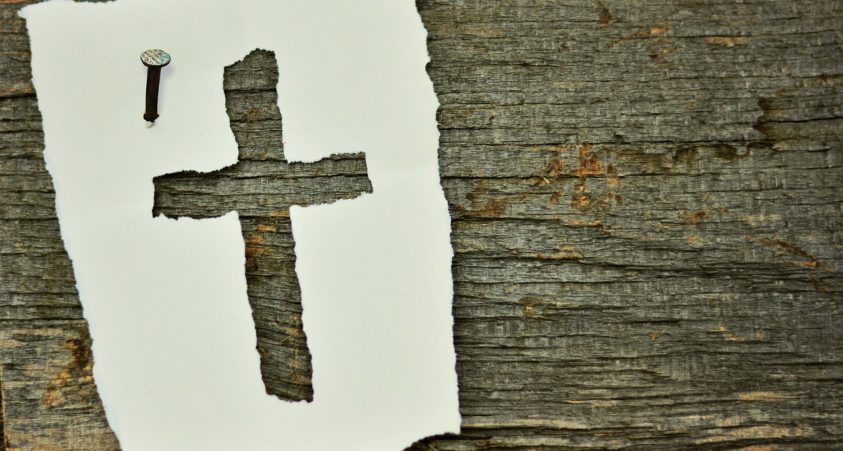
Too much or too little are two ways of doing something wrong. A well-meant action can go bad because of an excess of it or a lack of it. Courageous gestures, for instance, lie between excessive fear and recklessness.
If we consider risk, which is a common and inevitable element of life, what is too much or too little risk? The answer depends on the circumstances, it is not something fixed that can established in theory but only in practice.
For instance, public worship is not permitted in Ireland at the moment, because there is some risk of spreading the Corona virus. Proper measures could be established to limit the risk we can afford but a total ban, which is an extreme approach, has been enforced instead. At what point does this become unbalanced, especially in view of the fact that all European countries – bar the UK – have already restored public worship, albeit with limits on number attending? Ireland does not propose to do this until July 20th.
We haven’t seen cases of reckless imprudence, where dozens of worshippers have crammed into a church currently open for private prayer, thereby defying the rules of social distance. This wrecked behavior has happened at some recent political rallies.
What we have seen in Ireland, instead, is probably an excess of fear when compared to other European countries, where the Christians – lay and cleric – have often lobbied, successfully, for a restoration of a full celebrations, with the due precautions. Ireland is an exception.
The Christian world view never equates the good life with self-preservation and excessive risk aversion. Obviously, in the face of a real threat, we have to respond with prudence and respect the gift of life but, on the other hand, the accomplishment of the good requires a certain inevitable risk taking.
We would have no Christianity if those living under persecution, from the first centuries until now, put their own health and safety before preaching the Gospel.
If we let fear lead us to narrow the scope of our vision, ignoring what is normally happening in other countries, and assume a posture of self-preservation, we would betray our Christian call.
“Normal fear protects us; abnormal fear paralyzes us. Normal fear is a friend that motivates us to improve our individual and collective welfare; abnormal fear is an enemy that constantly poisons and distorts our inner lives. So, our problem is not to get rid of fear but to harness and master it”, wrote Rev. Martin Luther King in one of his most famous sermons.
An ethics of security that trumps other goods has never inspired saints.
During this epidemic we have seen many acts of heroism, particularly by those who were taking care of others. In Italy, for instance, many of the priests and nuns who have died, were infected while ministering the sick.
Clearly, not everyone is required such an extraordinary level of self-sacrifice and, more important, there is no heroism in putting other people’s life in danger.
While we appreciate self-sacrifice, we also have a duty to protect others. Nonetheless, there is no Christian life, or life in general, without risk and all personal decisions have unavoidable consequences on others. Those who professed the faith during the persecutions also exposed their own families or communities to a certain level of hazard. The concern of hostile consequences should never stop us from doing good.
It might also be said that it is one thing for a person to take a risk for themselves by attending church in a pandemic, but then they risk others if they become infected. Nonetheless, again, this calculation will have been made by the Church in every other part of Europe, and they have decided the risk of catching the virus at a public Mass which has limited numbers and has proper hygiene measures is very small and is worth taking.
Someone might distinguish between moral and natural evil, where moral evil is the one voluntarily produced by human beings, while the natural one follows from the events of nature outside human control, such as diseases, calamities, etc.
They could claim that risks taken in defiance of a moral evil might be virtuous – think of the martyrs – while risks taken in defiance of a natural evil are mere foolishness.
I honestly don’t find this distinction between moral and natural evil significant when we consider those who suffer from these evils. Enduring the most difficult circumstances, including natural evils, is a form of strength not less praiseworthy than suffering from human misdemeanours.
“Not the injury but the cause makes martyrs”, says St Augustine. Similarly, not the origin of evil but our resistance to its many manifestations, makes us virtuous.
Courage stands between excessive fear and insensitive fearlessness. Following St Augustine, St Thomas Aquinas teaches that “fear is born of love, since man fears the loss of what he loves.” Courage takes fear into account and surmounts it, avoiding both excess and defect.
Sacramental grace is currently denied in Ireland, when we need it most. “‘Twas grace that taught my heart to fear and grace my fears relieved”, we sing. Sooner than July 20th we should return to public worship and let grace relieve our fears so that we can safely worship God.
Nessun commento:
Posta un commento